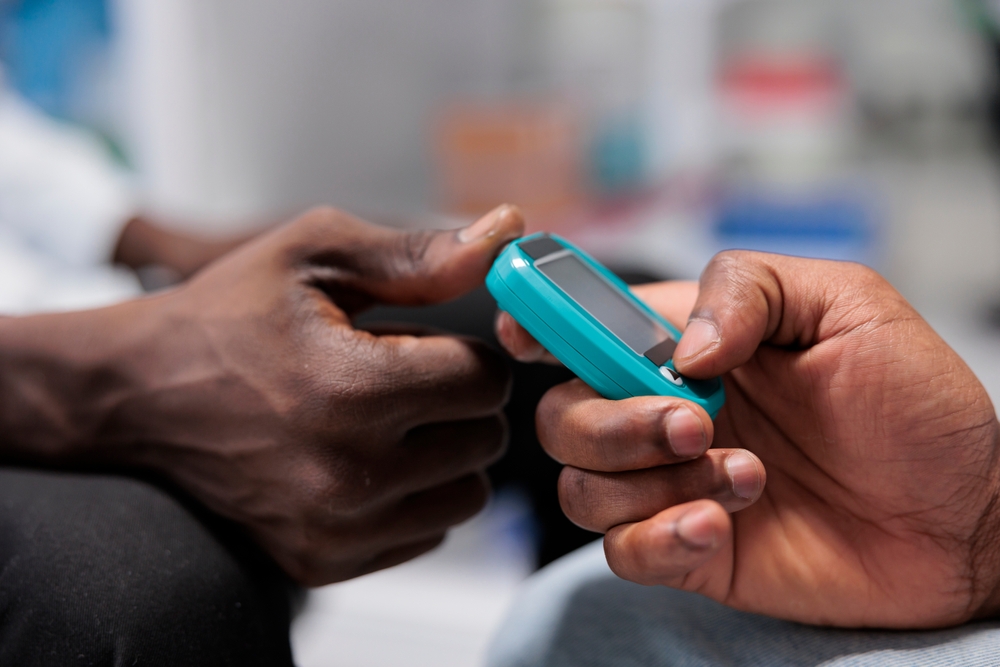Living with diabetes is already challenging enough, but there’s something your doctor might not have told you: it’s not just about managing your blood sugar. Think of diabetes as that one friend who shows up to the party and brings unexpected guests. Let’s talk about these uninvited visitors and what you can do about them.
Heart troubles you can’t ignore
- The cardiovascular connection that might surprise you, diabetes and heart disease are like toxic besties. When your blood sugar stays high, it’s basically giving your blood vessels the worst makeover ever, making them hard and narrow. This isn’t just about feeling tired or short of breath, it’s about your heart working overtime when it shouldn’t have to. And those chest pains people sometimes ignore? That’s your body sending an urgent text that something’s not right.
- Strokes aren’t just a random event when you have diabetes. It’s like your blood vessels are playing a dangerous game of Jenga, and high blood sugar keeps pulling out the wrong blocks. When those vessels in your brain get damaged, you’re at higher risk for a stroke, which can change your life in seconds. The scariest part? Sometimes the warning signs are so subtle you might miss them.
- Diabetic retinopathy sounds like a spell from Harry Potter, but it’s actually the leading cause of blindness in adults with diabetes. Think of your retina as a super delicate camera film that diabetes can slowly damage. The tricky part is you might not notice anything wrong until the damage is already serious. And it’s not just retinopathy, glaucoma and cataracts are also showing up to the party uninvited.
- Your kidneys are like the world’s most sophisticated filtering system, but diabetes can throw a wrench in the works. Diabetic nephropathy isn’t just a fancy medical term, it’s what happens when high blood sugar starts messing with your kidney’s ability to clean your blood. The scary part? You might not feel anything wrong until the damage is pretty far along.
- The pain you can’t explain, imagine your body’s wiring system getting scrambled, that’s basically what happens with diabetic neuropathy. It starts with tiny tingles or numbness in your feet, but it can turn into a full-on horror show of pain and balance problems. And it’s not just your feet and hands, it can affect everything from your digestion to your heart rate.
- Here’s something people don’t talk about enough, diabetes and depression are often partners in crime. Managing diabetes is like having a second job you never asked for, and that constant stress can take a serious toll on your mental health. But it’s not just about feeling sad, diabetes can actually affect your brain function and memory over time.
- Your body’s outer warning system, your skin, is basically a billboard advertising what’s happening inside your body. Diabetes can cause everything from weird brown patches to stubborn infections. It’s like your skin is trying to tell you something’s up, and it’s worth paying attention to these signs.
Taking control of your health
The good news? Knowledge is power, and now that you know about these uninvited guests, you can start showing them the door. It all starts with keeping your blood sugar in check, but there’s more to it than that. Think of it as a complete lifestyle upgrade.
Managing diabetes and its complications isn’t about perfect numbers, it’s about consistent effort. Regular check-ups with your healthcare team aren’t just appointments, they’re your strategy sessions for staying ahead of complications. Getting your blood sugar, blood pressure, and cholesterol checked regularly is like having an early warning system for potential problems.
The power of prevention
Here’s the thing about preventing diabetes complications, it’s not just about medications. Your daily habits play a huge role in keeping these complications at bay. Regular exercise isn’t just good for your blood sugar, it’s like a shield protecting your heart, brain, and pretty much everything else.
The best way to deal with diabetes complications is to stop them before they start. That means staying on top of your medication schedule, keeping all your doctor appointments (even when you feel fine), and paying attention to what your body’s trying to tell you.
Remember, living with diabetes is a marathon, not a sprint. These complications might sound scary, but knowing about them means you can take steps to prevent them. Your future self will thank you for paying attention now, even when it feels overwhelming. Stay informed, stay vigilant, and most importantly, stay proactive about your health.














